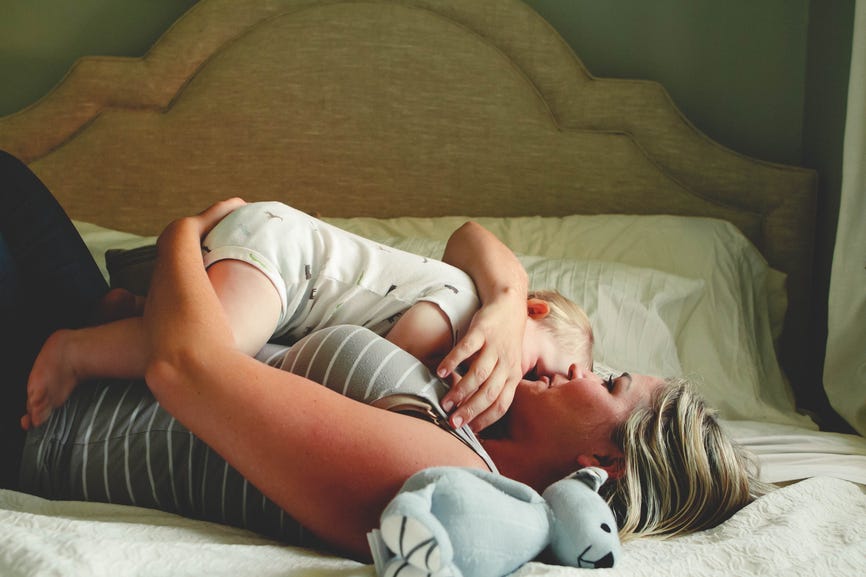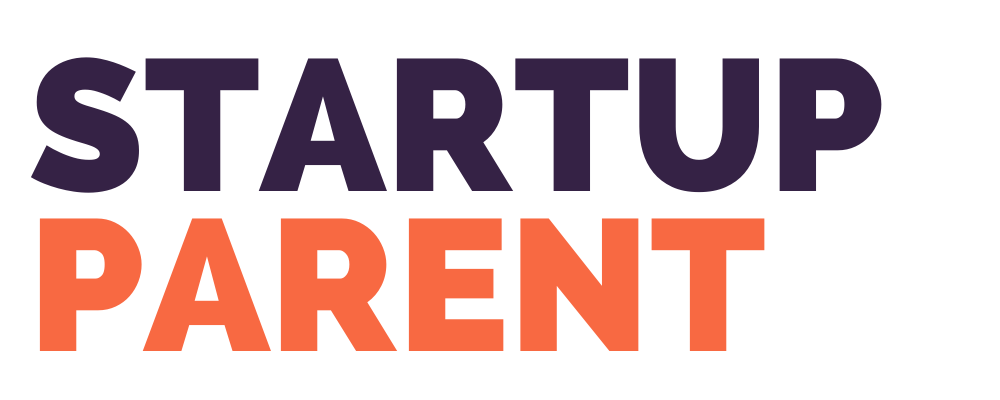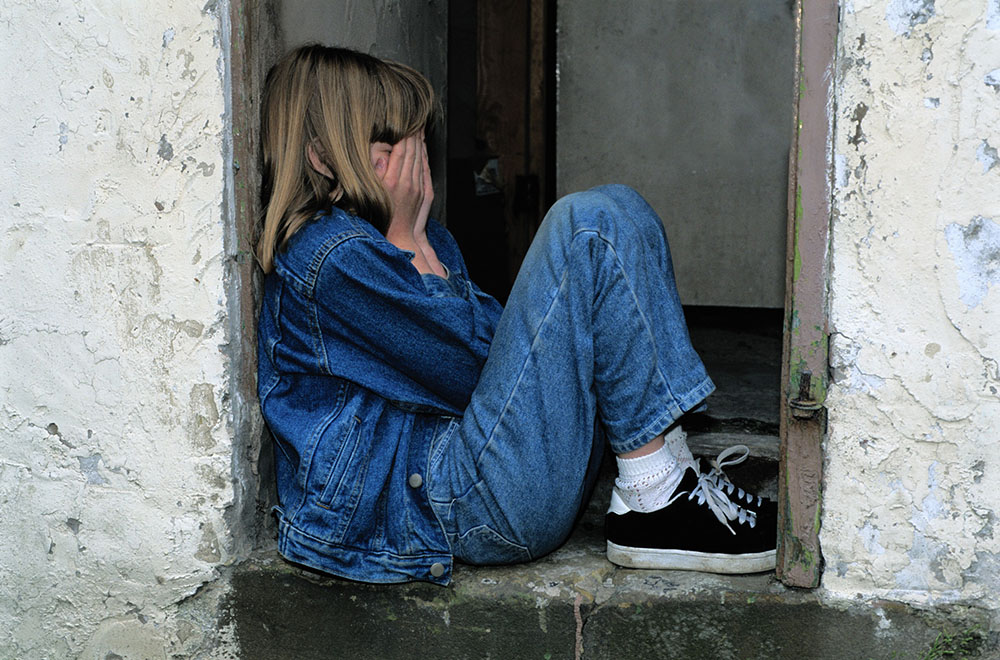My story starts, sandwiched between bunkbeds and garden chores and group spankings, a long time ago. It starts with my own mother, who was a monolith.
My mother had a dream for our life, and she carried it out, through sleepless nights and careful indoctrination. We carried it out too, oblivious to how we would later fight to get parts of ourselves back. There were 10 of us. I came first and helped raise the rest.
I did not want my mother’s life.
I did not want to alternate between being pregnant and breastfeeding for twenty years, nor did I want the underlying lack of autonomy and choice that represented to me. Yet still, her legacy and example ran deep, and I was always sure that whatever edition of motherhood I might someday desire would come easily to me.
During the exciting days of being pregnant with my firstborn, I tallied the ways I knew what I was doing. I had already changed more diapers than I probably ever would as a mother, choking babies didn’t worry me, and how hard could changing the sheets of just one sick child in the night be? I thought it would all fall into place, like it seemed to have for her. Surely all of my “experience” would set me up for an easy transition to motherhood.
I did not know to tally the anxiety and panic caused by a baby that screamed for months, or the isolation I felt as my husband withdrew more and more. I had no way to account for the sudden and dramatic hormonal shifts that follow birth. No one talked about how, in the weeks after he was born, my insides would feel like a pulsing hot gulf, nor about the guilt I would feel that my baby didn’t fill it.
My mother certainly didn’t talk about it.

Over the years, I have been increasingly compelled to try and understand my experience of motherhood in the greater context of community. As part of this discovery, I launched a project called Motherbirth, a podcast helping women explore and tell the stories of the transition and transformation of motherhood.
What amazes me during each conversation is how different each story is and yet how each time, I am nodding my head and vehemently saying “YES. YES. YES”.
Almost every woman I know has found early motherhood to be an isolating time in their life. And yet, ironically, our collective experiences of it are hauntingly similar. The details vary, but the themes are always the same:
I don’t know how to trust myself or my baby
I often experience negative emotions towards my baby — there must be something wrong with me
I feel guilty that I don’t “enjoy the baby phase” like I’m supposed to
I feel so isolated
All the other moms are judging me
I’m so in over my head
Most of these women didn’t have the upbringing that I did, nor the same reasons for assuming that everything would fall into place. But the more conversations I have had, the more I realize what we all have in common — we were each tragically ill equipped for the emotional transition of motherhood. Which begs the question: Why have we let it get this way?
There is a saying that is prominent in mother communities: “The moment a child is born, the mother is also born.” This language is beautiful and poetic, of course. In my exploration of the idea behind Motherbirth, I’ve come back to it again and again, knowing that something about this assumption doesn’t feel quite right to me.
Because the truth is that for many of us, we are mothers long before we have children of our own, and in so many cases, even if we cannot. For others of us, welcoming a child doesn’t produce a magical, instantaneous transformation. And for most of us, claiming our motherhood is a lifelong journey that can’t be isolated to moments like peeing on a stick or holding our baby for the first time.
We have to realize that the transition to motherhood is a complete identity shift, and that expecting it to happen magically and easily is a big part of what breeds isolation and guilt for new mothers.
“Giving birth to a new identity can be as demanding as giving birth to a baby… becoming a mother is an identity shift, and one of the most significant physical and psychological changes a woman will ever experience,” writes author Alexandra Sacks (article).
As individuals whose basic survival needs are met through automatic patterns, we are enabled to spend our intellectual and emotional energy on relationships, career, pleasure, etc. Then suddenly, there is this new human being whose only survival instinct is to demand protection and nourishment from you, and there is no other person who can do the job. This happens amidst a flood of shifting and raging hormones. In my experience, this is not just adding something new, like a new relationship or a career shift. It is a whole new identity. And we are supposed to simply adjust automatically?
I’m not suggesting that there isn’t anything left of who we were when we become mothers or that the desired outcome is that we leave these parts of us behind. In fact, self care and nurturing our pre-motherhood identities are such important components of maternal mental health and preservation of existing/desirable social structures. But it’s naive to pretend that things ever go back to the way they were — and cruel that so many new mothers end up surviving (if barely) this transition on their own.
“You feel so isolated…. You are treated so delicately when you are pregnant; and then you have a baby, and everyone just expects you to be ok.”
— Carolina Baker, Motherbirth Guest
Some parts of this biological, primal shift of identity and purpose do happen instantaneously. We will care for our babies at almost any cost; a built-in instinct, fortunately. We are filled with love for this demanding creature. But the parts that are not so instantaneous leave us with doubt and guilt as we question — what if we are not really up to this task? What if we are not ready?
What if I am not a good mother?
If more women in my life had been transparent about how big of a transition becoming a mother really is, on every level, I may not have spent my first pregnancy patting myself on the back for how ahead of the game I was going to be. I may have cultivated a posture of vulnerability and curiosity instead. It could have really benefited me to do a gut-level check on the unspoken expectations I had of myself, my partner, my baby and even my body. Pregnancy is a season. Motherhood is forever. We should spend more time opening ourselves to the latter.
Of course, the undeniable reality is that there isn’t any way to be 100% prepared for life after a newborn, and any mother will tell you this. We simply need the opportunity to share and normalize our stories, to trust that our experiences are real and valid and not shameful. To experience the wonders and hardships of motherhood with real community. We could all use a few more friends sobbing on our shoulder about the nightmare of separation anxiety and a few less filtered instagram images of showered mamas gazing into their adoring infants eyes. If we can separate ourselves from the false narratives of what motherhood looks like, and dig into the real and varied experiences of motherhood through connection, we can create a new — true — image of what it means to become a mother.


This is absolutely beautiful in it’s honesty. Thank you.
This is so profound and yet so simple, and yet so complex!! I’m so thankful to be reading this as I’m pregnant with my first baby. Thank you for reminding me to approach this identity shift with curiosity instead of righteousness. <3
[…] But then I sank into a deep nap afterwards, and I watched. I watched the impulse, the feeling, the anxiety crest and fall, the satisfaction, and the resting. Humans are such interesting and strange […]